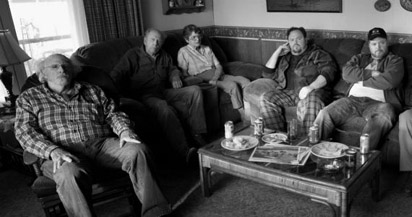|
|
They Shoot Oscar Prognosticators, Don’t They?Handicapping the “Below the Line” Races – Part OneBy J. Don BirnamFebruary 3, 2014
Best Cinematography Let’s start with an award that was in the news this weekend - Best Cinematography. On Saturday, the American Society of Cinematographers guild gave their top prize to Gravity’s Emmanuel Lubezki, and I predict that the Mexican cinematographer will emerge victorious on Oscar night. From the other nominees in this category, one can likely and safely eliminate The Grandmaster, Inside Llewyn Davis, and Nebraska. The first movie, The Grandmaster was neither well reviewed nor widely seen. The nomination is well-deserved, as the photography for the movie including overseeing the shooting of single scenes which took over three full weeks to film - with eerie smoke and opaque lightning. It is the kind of lightning that brought Oscars to Road to Perdition and Inception’s cinematographers, but those movies were highly respected. Nebraska is also a deserved nominee - I understand it is singularly difficult to film a movie in black and white and still give some vibrancy to the ultimate effect and carefully distinguishing between tones of gray. But, ultimately, black and white may seem too “simplistic” to the lay Academy member to vote for this film, and despite some nominations for black and white films since Schindler’s List took home the prize, none has emerged victorious on Oscar night. Inside Llewyn Davis also shows some gumption from the cinematographers’ branch - they must have admired, like I did, the faded color palette that gave a stale, near black and white aesthetic to the movie. Indeed, its nomination shows that at least a small group of the Academy respects that movie and, I suspect, is deeply passionate about it. But its weaker-than-expected showing across the other branches likely dooms its chances here.
|

|
|
|

|
Thursday, October 31, 2024
© 2024 Box Office Prophets, a division of One Of Us, Inc.


